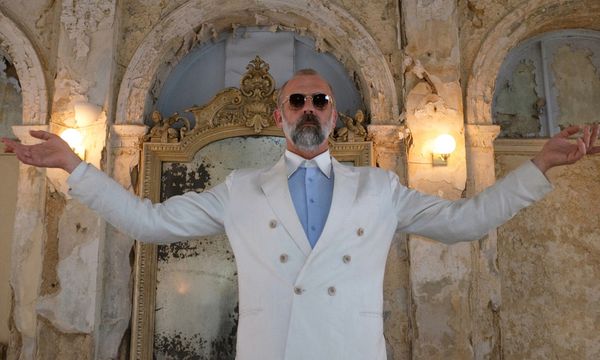Eye For Film >> Movies >> A Pure Place (2021) Film Review
A Pure Place
Reviewed by: Jennie Kermode

From ritual washing in Islam to cleanliness as a virtue in Hinduism. religions frequently place keeping clean at the heart of orderly behaviour, make it central to membership of a civilisation. Nikia Chryssos’ second film, which screened as part of Fantaspoa 2022, is set in a cult based around soap itself, manufacturing it as a means of economic subsistence. it is also a deeply hierarchical environment in which children serve as factory slaves, down in the dark and the dirt, whilst those deemed to have attained a sufficient level of purity lead an idyllic life at the summit of their Mediterranean island (actually Aegina), close to their leader, the man they call Fust.
The divide between clean and unclean is an important one, but other loyalties still exist in this place. The bond between Irina (Greta Bohacek) and her little brother Paul (Claude Heinrich) is strong. When an unexpected discovery leads to her early promotion to the ranks of the pure, Paul feels betrayed. “What happens to the ones who aren’t pure?” he asks early on. Although they are officially separated, he is occasionally able to visit her, and tries to protect her from things neither of them clearly understand. Another loss fuels his anger, and despite his slender years, he becomes a committed revolutionary.
Sumptuous costuming and production design, together with Yoshi Heimrath’s lucid cinematography, make this a feast for the eyes, and that’s the level at which it really seems intended to satisfy, as with the stage play which Fust (Sam Louwyck) arranges for his followers, in which Irina is to play the role of the goddess Hygieia. It’s based on a heavily mythologised version of his own life. “The stage is the intermediate realm upon which we may encounter the gods,” Fust says. Everything here is illusion, even things we might fear, but that doesn’t mean there’s no danger. Irina faces not just sexual peril but another kind of grooming as Fust reveals a different story about his past and his end game emerges.
Narratively, the film is rather slight, and it has a tendency to resort to shock imagery as a cover for this. Some viewers will also find its soap-related rituals too silly to take seriously, though real life cults have formed around sillier things. The acting is generally good and Chryssos makes effective use of his locations. The decision to situate the cult not far from Athens both adds to the film’s satirical value and highlights the way that such organisations – even ones which abuse or exploit children – are often allowed to coexist for prolonged periods alongside societies which profess to have a very different set of values.
There’s a lot here which is poetically appealing, but it’s all style with very little substance. It never quite dares to give free rein to its anarchic elements, where its natural power - and young Heinrich's considerable talents - clearly lie. Chryssos has established that he can enchant the eye. He clearly has the intelligence to engage viewers’ brains as well, and after seeing this, you may well look forward to him doing so.
Reviewed on: 25 Apr 2022















